THE PROMISED LAND (2023)
The story of Ludvig Kahlen, who pursued his lifelong dream: to make a barren heath bring him wealth and honour.
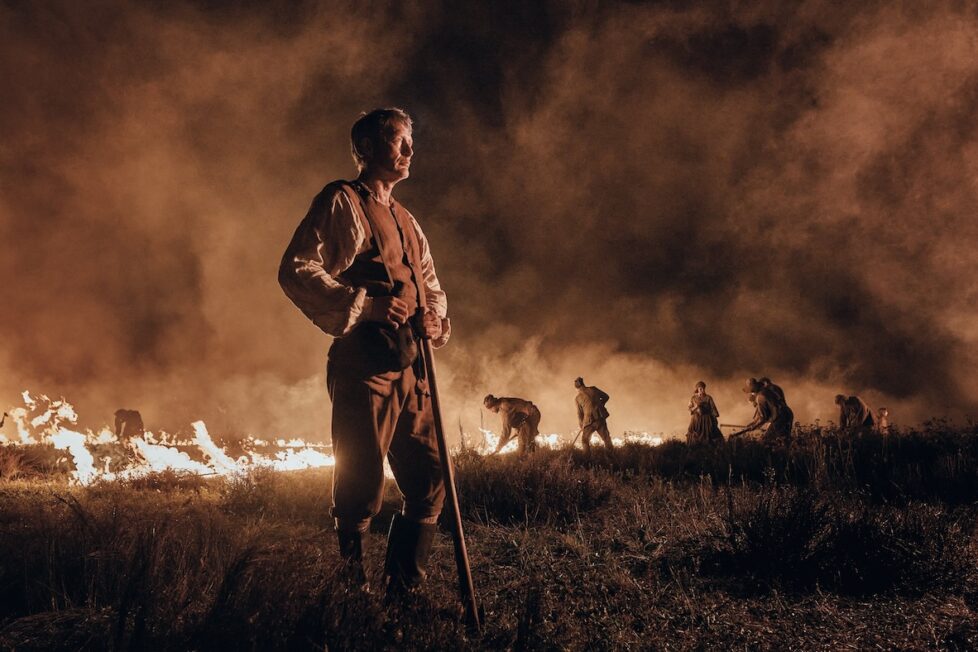
The story of Ludvig Kahlen, who pursued his lifelong dream: to make a barren heath bring him wealth and honour.


Nikolaj Arcel (The Dark Tower) directs The Promised Land / Bastarden, a film about a Danish veteran, Ludvig Kahlen (Mads Mikkelsen), who risks his life to cultivate the King’s heath, an infertile wasteland devoid of soil, plants, and hope. Across these desolate plains, he battles the forces of nature and sceptical nobles in pursuit of his dream: recognition from the King. But while beautifully shot and acted, it’s a film treading familiar thematic ground.
Staking his soldier’s pension and livelihood on the gamble for nobility, Ludvig Kahlen secures written approval from the King’s court to reclaim the barren heath. This audacity earns him the contempt of a young, local lord, Frederik de Schinkel (Simon Bennebjerg). Undeterred, Kahlen finds assistance from two runaway servants, Ann Barbara (Amanda Collin) and Johannes (Morten Hee Andersen), a compassionate priest (Gustav Lindh), and foul-mouthed young outlaw Anmai Mus (Melina Hagberg). Together, they successfully cultivate potatoes when the winter frost wanes.
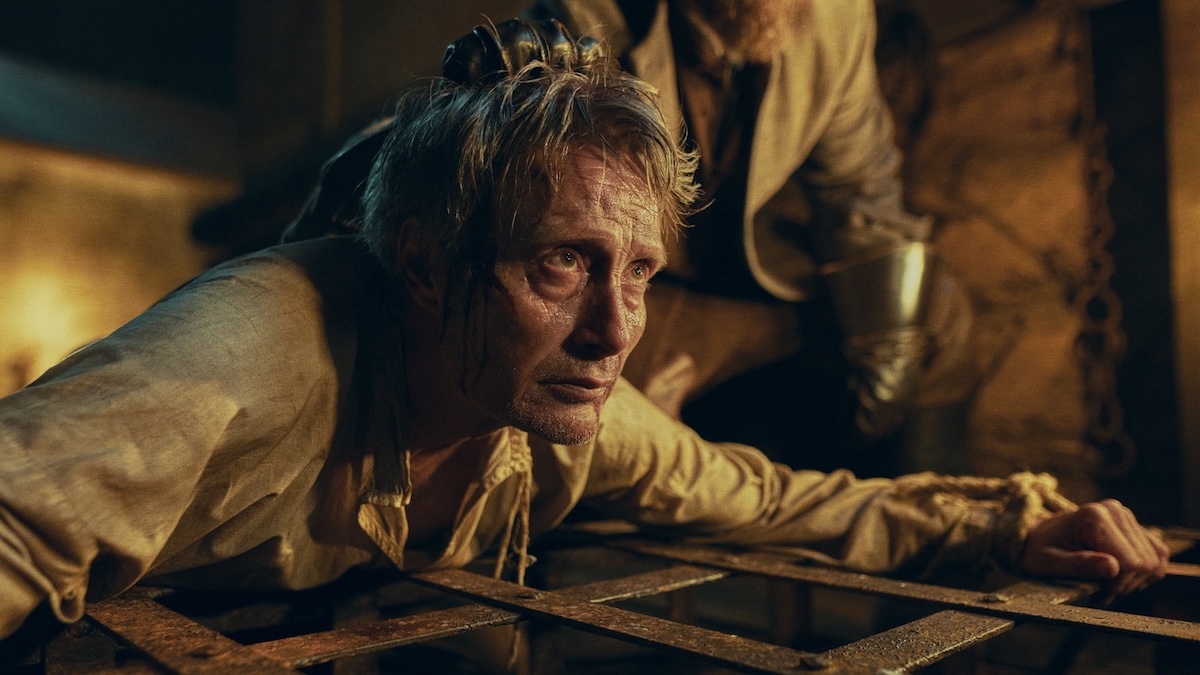
Nominated for a Golden Lion at the 80th Venice International Film Festival, The Promised Land finally has a wide release, showcasing the talents of Denmark’s biggest entertainment export, Mads Mikkelsen. As Ludvig Kahlen, Mikkelsen infuses star power into a compellingly complex character. Kahlen is silent, yet driven. A loner who transcends societal classes, he fears emotional connections and remains singularly focused on taming the heath to achieve status. Born the illegitimate son of a maid and a lord, he gained recognition only as an army Captain, before being quickly forgotten. Mikkelsen portrays Kahlen with intensity in his eyes, the pain and turmoil silently conveyed yet ever-present as he faces decisions that offer the personal connections he craves but directly hinder his aspirations of nobility. This internal conflict within Kahlen forms the core of The Promised Land, serving as a powerful metaphor for the untamable heath.
Unfortunately, the film’s external conflict falters. Throughout, characters bombard Kahlen with warnings about the heath’s barrenness and the impossibility of cultivating it. However, despite an early spring snowstorm, the elements and landscape never present truly insurmountable obstacles to Kahlen’s endeavours. Conversely, the insecurity and fragility of the local lord, Frederik de Schinkel, create a much more looming threat. Schinkel, a brutal and heartless antagonist, fears that the heath’s blossoming would undermine his control over the land. He relentlessly threatens Kahlen, wielding murder and devastation at every turn. While Simon Bennebjerg delivers a masterful performance, injecting jarring joviality into the heartless lord, de Schinkel ultimately comes across as an archetypal representation of the callous upper class, a character archetype we’ve encountered countless times on the big screen. His personality gets lost beneath the singular driving force of his insecurities, rendering him interchangeable with any antagonistic aristocrat in film history.
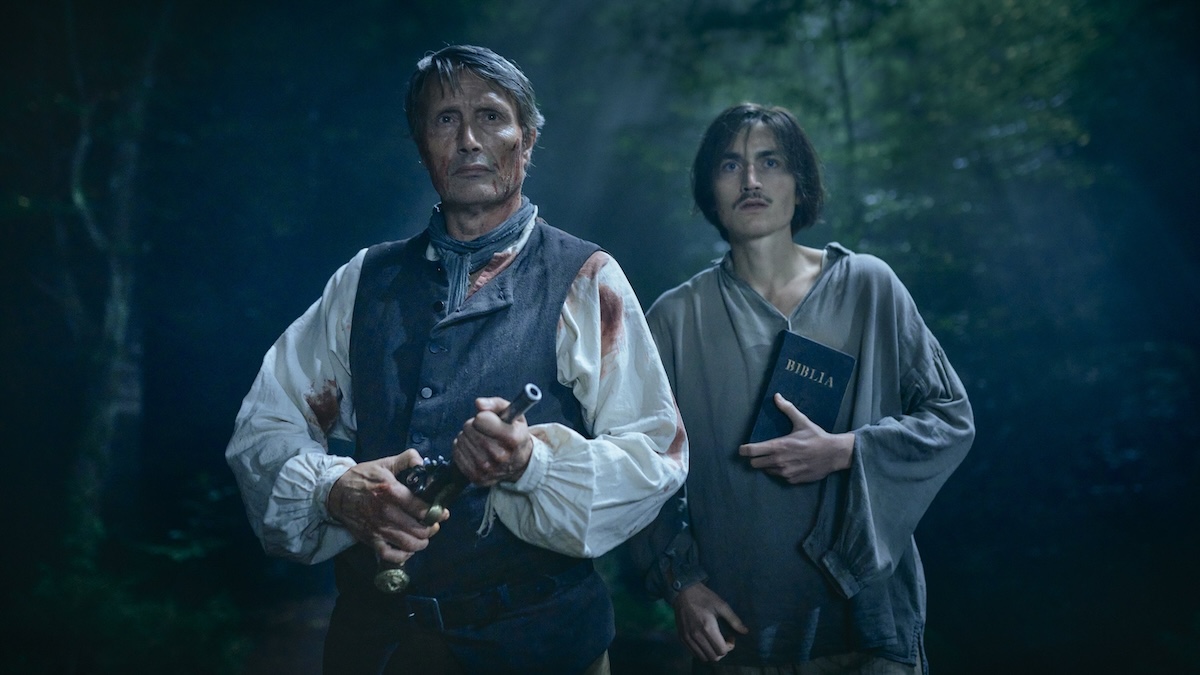
Still, the rest of the cast shines, each adding a unique touch to the film. Amanda Collin gives a dynamic performance as a woman caught between revenge and love; Kristine Kujath Thorp portrays de Schinkel’s desperate cousin, yearning for a future not dictated by his advances and finding solace in dreams of escape with Kahlen; and Melina Hagberg steals the show as a young girl brimming with spirit and sass, who defies the constraints of a prejudiced and harsh society in her search for a family.
Arcel does a fine job of planting these characters in a beautiful landscape. The wide shots of the heath are gorgeous, with realistic lighting cementing The Promised Land in its 18th-century setting. It thoroughly deserves to be seen on the big screen.
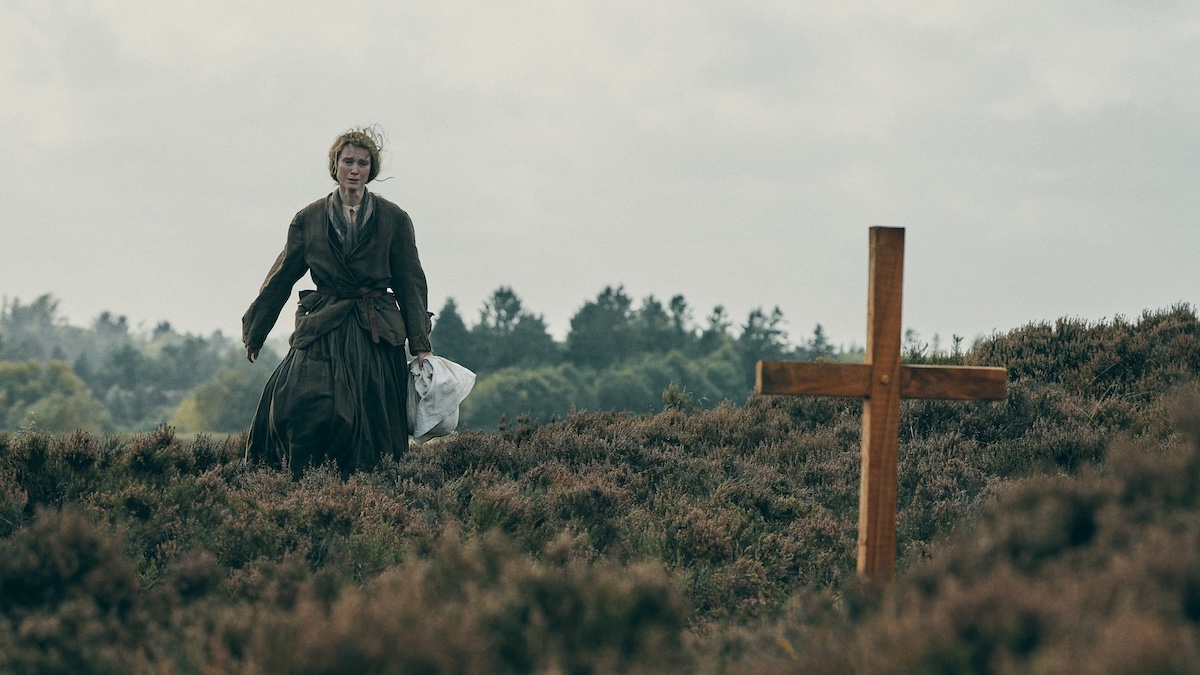
With a 127-minute runtime, The Promised Land can feel a bit long. The constant strife between Kahlen and de Schinkel drags in the middle, offering little growth to the characters or plot. In their first meeting, when de Schinkel attempts to bribe Kahlen for a share of the heath’s profits, he declares, “Life is chaos.” This line becomes a recurring motif throughout their conflict, yet it loses its impact when it’s revealed that the chaos is entirely de Schinkel’s creation.
Looking inward, towards the heart’s chaos, emerges one of the most memorable aspects of The Promised Land. Lord Trappaud (Jacob Lohmann) warns Kahlen, “Life rarely turns out how we want it to be.” This film transcends its thriller trappings of class struggle, becoming a powerful testament to unexpected bonds. While thematically familiar, its strength lies in the placement of its characters.
Set in 18th-century Denmark, The Promised Land will garner attention for its unique setting. For many filmgoers, this historical drama offers fresh insights. An enticing proposition in a sea of remakes, it aims to carve its own path. Though thematically familiar and burdened by a bland antagonist, the film finds solace in its compelling supporting cast and evocative setting. This Danish gem, bolstered by Mads Mikkelsen’s star power, thrills audiences and draws them into the characters’ lives.
DENMARK • SWEDEN • NORWAY • GERMANY | 2023 | 127 MINUTES | COLOUR | DANISH • GERMAN

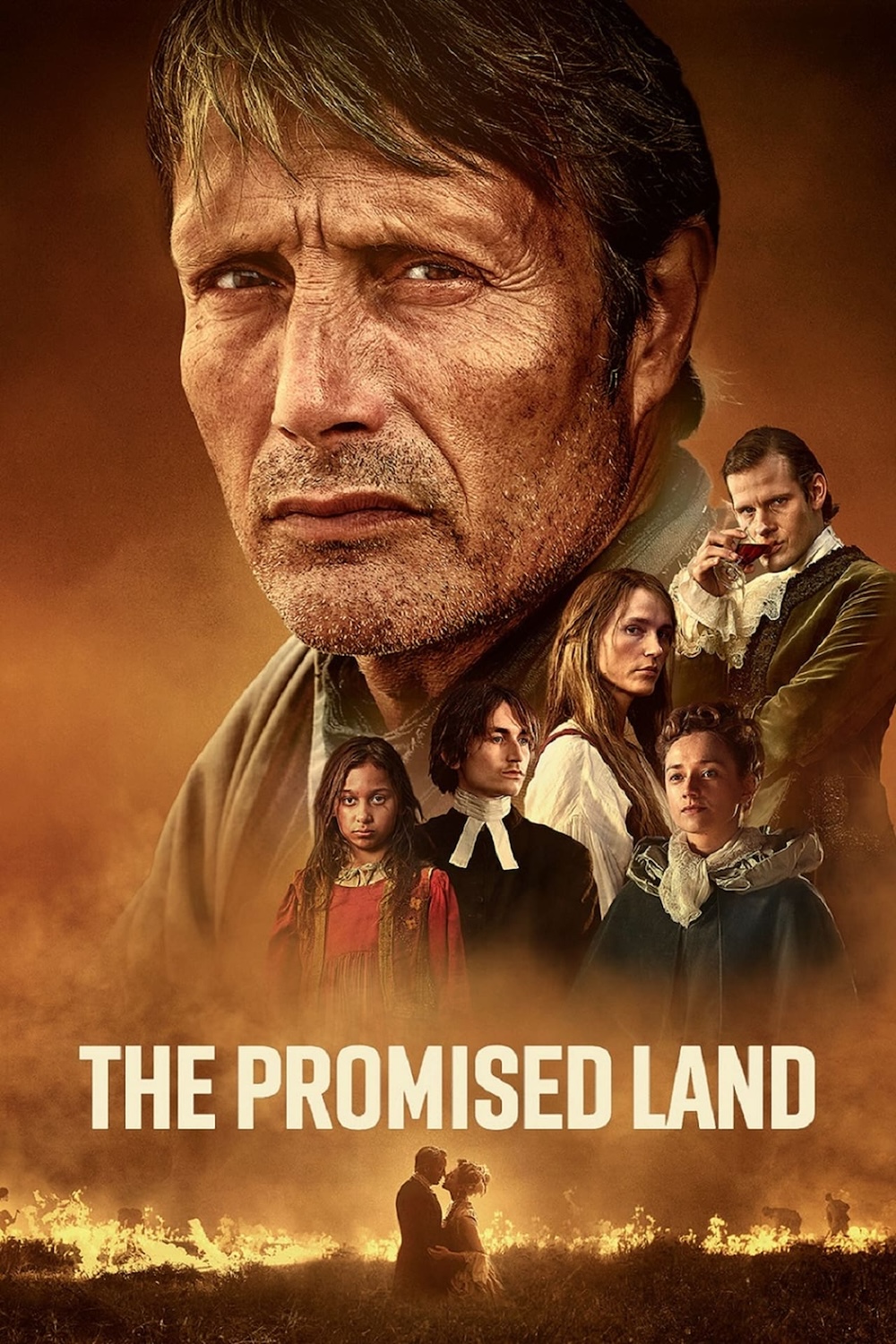
director: Nikolaj Arcel.
writers: Nikolaj Arcel & Anders Thomas Jensen (based on ‘The Captain and Ann Barbara’ by Ida Jessen.
starring: Mads Mikkelsen, Amanda Collin, Simon Bennebjerg, Melina Hagberg, Kristine Kujath Thorp, Gustav Lindh, Thomas W. Gabrielsson & Magnus Krepper.
